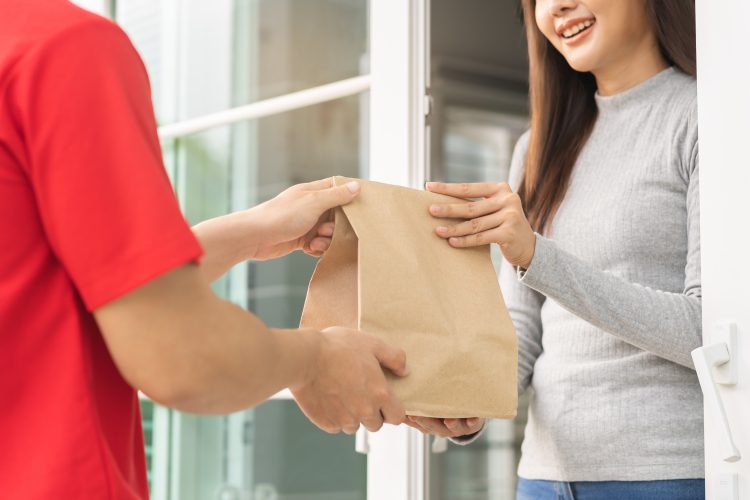“Green nudges” cut plastic waste in takeaway food delivery
- Like
- Digg
- Del
- Tumblr
- VKontakte
- Buffer
- Love This
- Odnoklassniki
- Meneame
- Blogger
- Amazon
- Yahoo Mail
- Gmail
- AOL
- Newsvine
- HackerNews
- Evernote
- MySpace
- Mail.ru
- Viadeo
- Line
- Comments
- Yummly
- SMS
- Viber
- Telegram
- Subscribe
- Skype
- Facebook Messenger
- Kakao
- LiveJournal
- Yammer
- Edgar
- Fintel
- Mix
- Instapaper
- Copy Link
Posted: 11 September 2023 | Grace Galler | No comments yet
With the help of “green nudges”, a popular food delivery platform in China increased the share of no-cutlery orders by 648 percent, according to study.


According to a recent study, “green nudges” have encouraged consumers in China to not ask for single-use cutlery with their food delivery orders.
Carried out by the Hong Kong University Business School, the researchers worked with Alibaba’s online food-ordering platform Eleme, China’s second largest food-delivery company, which is similar to Uber Eats and DoorDash.
“Few policies target plastic waste production at the consumer level, except charges on plastic bags. Our findings show that simple nudges can make a big difference in changing consumers’ behaviours and could become a tool for policymakers as they confront the immense challenge of plastic waste,” said EPIC-China’s Research Director Guojun He, an author of the study and an Associate Professor at the Hong Kong University Business School.
He and his co-authors Yuhang Pan, Albert Park, Yasuyuki Sawada and Elaine Tan evaluated the effectiveness of Alibaba’s green nudges to reduce single-use cutlery consumption. These nudges included changing the default selection to “no cutlery” and including green points as rewards for not using the cutlery. When a customer accumulated enough green points, they could then be redeemed to plant a tree under the customer’s name.
During the study, the researchers studied each user’s monthly food-ordering history for two years through 2019-2020 in 10 major Chinese cities. These included the three treated cities with green nudges such as Beijing, Shanghai, and Tianjin, and the seven control cities without the nudges Qingdao, Xi’an, Guangzhou, Nanjing, Hangzhou, Wuhan, and Chengdu.
Among these cities, the authors randomly sampled about 200,000 active users (i.e., those who placed at least one order between 2019 and 2020.
Results of the study found that there was a 648 percent increase in consumers opting out of ordering plastic cutlery with their food order, instead receiving “green points”.
The Hong Kong University Business School researchers have said that, if these “green nudges” were applied all across China, “more than 21.75 billion sets of single-use cutlery would be saved annually”, which amounts to a whopping 3.26 million metric tons of plastic waste and saves 5.44 million trees (from wooden chopsticks) each year.
Back in 2021, more than 400 million metric tons of plastic waste were produced worldwide, with the researchers claiming that it is predicted that the world’s plastic waste growth will “continue to outpace the efforts to reduce plastic pollution in the coming decades”.
However, with the rise in popularity of food delivery services since the COVID-19 pandemic, the team claims that the surge in plastic waste generated by single-use cutlery has become a key environmental challenge for many countries.
The researchers have highlighted that reducing single-use cutlery waste in the food-delivery industry is “particularly important in China”, as it is reportedly the “world’s largest producer and consumer of single-use cutlery”. In fact, as of 2019, more than 540 million Chinese consumers were active users of food-delivery services and reportedly consumed more than 50 million sets of single-use cutlery each day that were not adequately treated or disposed of, according to the authors of the study.
In a bid to reduce single-use cutlery consumption, policy-makers in China set a target of reducing its usage in food deliveries by 30 percent by 2025.
He has explained that they believe other food delivery platforms such as UberEats and DoorDash can adopt similar nudges in the future to reduce cutlery consumption and plastic waste globally.
Related topics
COVID-19, Food Waste, Research & development, retail, Sustainability, The consumer, Trade & Economy
Related organisations
DoorDash, Eleme, Hong Kong University Business Schoo, UberEats







